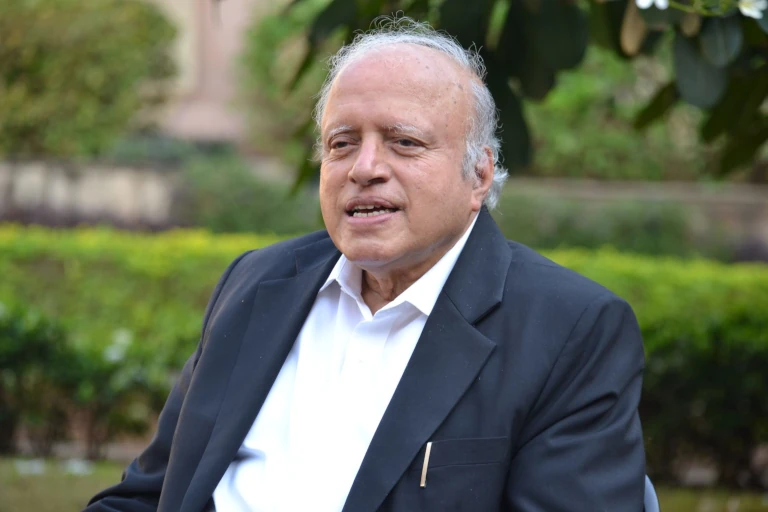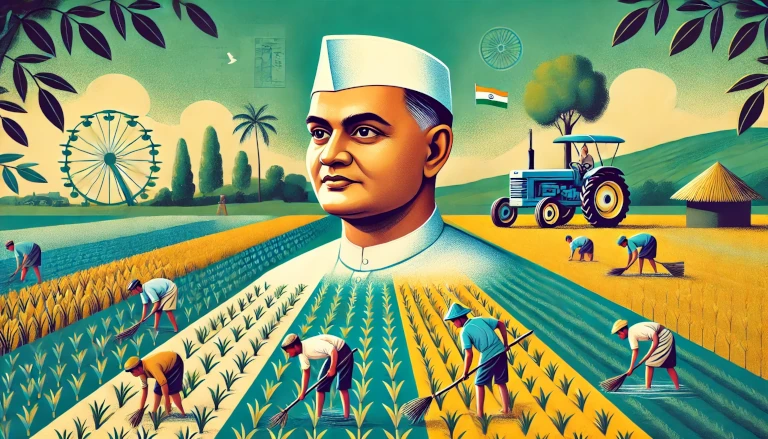Dr. Mankombu Sambasivan Swaminathan (M. S. Swaminathan) is hailed as the “Father of the Green Revolution in India” for his pioneering work in agricultural science. Known globally for his contributions to food security, Dr. Swaminathan revolutionized Indian agriculture by introducing high-yielding crop varieties, especially wheat and rice. His efforts played a crucial role in making India self-sufficient in food production, alleviating hunger, and raising millions out of poverty. This guide delves into Dr. Swaminathan’s life, vision, contributions, and the enduring impact of his work on Indian agriculture.
Who is Dr. M S Swaminathan? 🧑🔬
Born on August 7, 1925, in Kumbakonam, Tamil Nadu, Dr. M S Swaminathan is a renowned Indian agricultural scientist. He graduated in Agricultural Sciences from the University of Madras and later pursued genetics at the Indian Agricultural Research Institute (IARI). His studies and passion for plant genetics led him to dedicate his career to solving food security challenges, which ultimately made him a prominent figure in global agriculture.
What is Dr. M S Swaminathan Best Known For? 🥇
Dr. Swaminathan is best known for his role in India’s Green Revolution, a period during the 1960s and 1970s when India adopted high-yielding crop varieties and modern farming practices to counter a severe food crisis. With the introduction of dwarf wheat and other resilient varieties, he transformed India from a food-deficient nation to one that could feed its population and even export surplus.
Key Contributions:
- Introduction of High-Yielding Varieties (HYVs): His efforts in introducing HYVs of wheat and rice laid the foundation for increased productivity.
- Promotion of Sustainable Farming: Dr. Swaminathan advocated for environmentally friendly farming techniques to ensure long-term agricultural sustainability.
Work Done by Dr. M. S. Swaminathan 🌾
Dr. Swaminathan’s work focused on agricultural genetics, with specific attention to crop improvement and sustainable farming. His efforts helped create crop varieties that could withstand adverse climatic conditions, resist pests, and yield more grains. Here’s a look at some of his critical contributions:
- Green Revolution: Dr. Swaminathan played a pivotal role in India’s Green Revolution by collaborating with scientists like Norman Borlaug to introduce HYVs, primarily of wheat.
- Establishment of the MS Swaminathan Research Foundation (MSSRF): In 1988, he founded the MSSRF, a non-profit organization focused on using science for sustainable agricultural practices.
- Agroecology and Biotechnology: Dr. Swaminathan promoted using biotechnology and agroecological principles to develop climate-resilient crops.
How Did Dr. Swaminathan’s Work Help India and the World? 🌍
Dr. Swaminathan’s contributions were transformative, not only for Indian agriculture but also for developing countries worldwide that faced similar challenges. His work has significantly impacted food security, poverty alleviation, and agricultural sustainability:
- Enhanced Food Security: The high-yielding crop varieties introduced by him drastically increased grain production, reducing India’s dependency on food imports.
- Poverty Reduction: By increasing productivity, the Green Revolution helped improve farmers’ incomes and create rural employment opportunities.
- Global Influence: The techniques and strategies he developed have influenced agricultural policies in other developing nations seeking to address hunger and food scarcity.
Vision of Dr. M S Swaminathan 🌱
Dr. Swaminathan’s vision extends beyond mere food production to creating a sustainable and equitable agricultural ecosystem. He believed in a “Evergreen Revolution”, aiming to increase food production without harming the environment. His philosophy combines technological advancement with environmental stewardship, advocating for practices that enhance productivity without depleting resources.
Key Elements of His Vision:
- Sustainable Farming: Promoting practices that do not harm soil health or biodiversity.
- Community Engagement: Involving local communities in agricultural development for self-reliance.
- Climate-Resilient Crops: Developing crop varieties that can withstand changing climatic conditions.
Major Achievements and Milestones of Dr. M S Swaminathan 🏆
Dr. Swaminathan’s lifelong dedication to agricultural science has earned him several prestigious awards and honors:
- Padma Bhushan (1972): One of India’s highest civilian honors, awarded for his significant contributions to agriculture.
- World Food Prize (1987): Recognized globally for his efforts to promote sustainable food security.
- Padma Vibhushan (1989): Awarded the Padma Vibhushan, India’s second-highest civilian award, for his exemplary contributions.
- UNESCO Mahatma Gandhi Prize (2000): For his efforts in bridging science and social justice.
Examples of His Work and Impact 📈
Dr. Swaminathan’s work has had far-reaching effects:
- Wheat Yield Increase: The adoption of dwarf wheat varieties doubled wheat production in India, helping the country attain self-sufficiency.
- MSSRF’s Initiatives: Through the M S Swaminathan Research Foundation, Dr. Swaminathan has focused on programs like bio-village and biotechnological applications to empower rural communities.
- Sustainable Agricultural Development: His advocacy for using biotechnology for sustainable development has shaped India’s agricultural policy, particularly regarding GMOs and bio-farming.
Limitations and Challenges 🛠️
While Dr. Swaminathan’s work has had a profound impact, it has also faced certain challenges:
- Environmental Concerns: The Green Revolution led to increased fertilizer and pesticide usage, raising environmental concerns.
- Water Dependency: High-yield crops introduced during the Green Revolution often required substantial water resources, posing sustainability challenges.
- Economic Disparities: The Green Revolution’s benefits were unevenly distributed, with larger farmers benefiting more than smallholders.
Despite these challenges, Dr. Swaminathan has consistently advocated for environmentally sustainable practices to address these concerns.
The Legacy of Dr. M S Swaminathan 🌾🌍
Dr. M S Swaminathan’s life and work stand as a testament to the power of science and innovation in transforming society. His Green Revolution not only saved India from food scarcity but also positioned the country as a model for sustainable agricultural development. His vision of an “Evergreen Revolution” continues to inspire generations of scientists and farmers to seek sustainable solutions that harmonize with the environment. As the world faces new agricultural challenges, Dr. Swaminathan’s legacy remains a guiding light for creating resilient, sustainable food systems.
Dr. M S Swaminathan’s contributions to sustainable agriculture and food security mark him as a visionary in agricultural science, forever changing Indian farming. 🌾
Read this in Marathi at डॉ. एम. एस. स्वामिनाथन: भारताच्या हरित क्रांतीचे जनक
Discover more from Green Ecosystem - Renewable Energy, Agriculture, and Environmental Sustainability
Subscribe to get the latest posts sent to your email.


